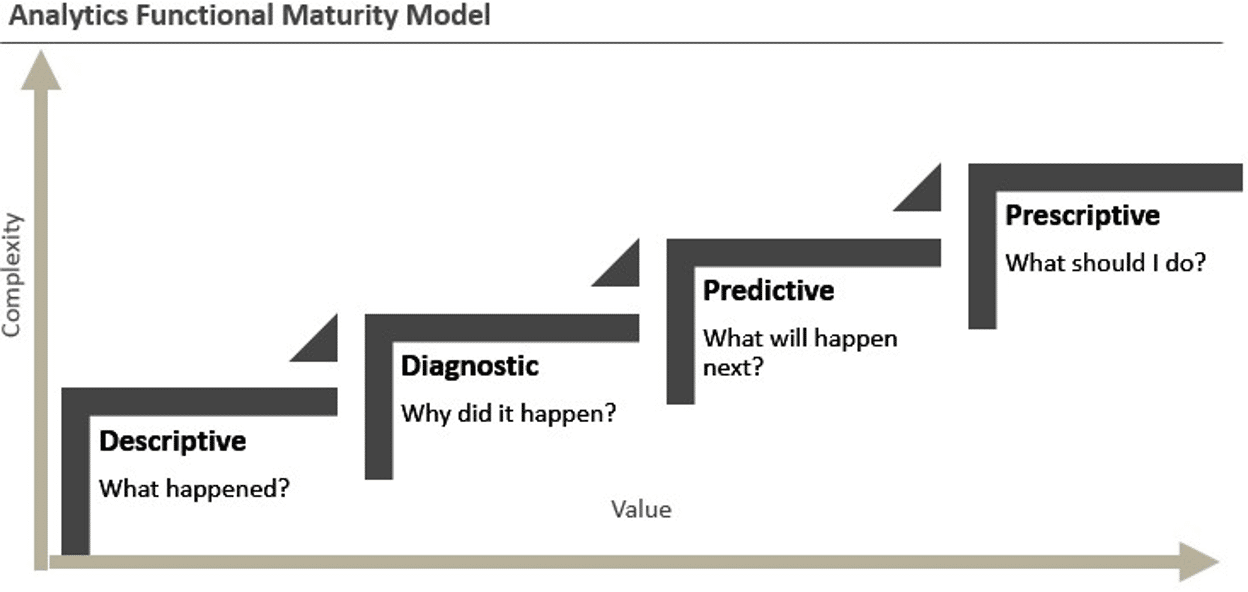Future-Proofing Your Legal Tech Stack, Part II: Data Strategy
According to bestselling author Bernard Marr, “Data is revolutionizing the way we all do business. Every business is now a data business and needs a robust Data Strategy. However less than 0.5% of all data is ever analyzed and used, offering huge potential for organizations when trying to leverage this key strategic asset.”
As Arran Braganza, founder and CEO of Jalubro Consulting Ltd., explains it,
“As a consultant who has worked with legal departments across industries for many years, one commonality I have consistently observed is that all legal departments are in possession of an incredible amount of data.
“That data may be located in a number of disparate locations ranging from documents and invoices to emails, matter files, and databases – making effective use of the information feel overwhelming. This is why it is so important that legal departments embrace and develop a data strategy.”
By creating a comprehensive data strategy that aligns with business objectives, legal departments can begin to create meaningful legal metrics that drive truly impactful decision making.
How can a data strategy happen?
A “data strategy” can’t exist decoupled from a company’s business strategy, or the strategy of departments (like Legal) charged with reaching organizational goals. Those are where planning a data strategy has to start: By understanding those strategies and the processes needed to support them. Only then can one figure out what data matters most in developing and measuring the KPIs that determine process success.
This effort, however, should begin with the creation of a data steering committee or similar group. As Brian McGovern, General Manager, Workflow Solutions at Mitratech points out, “A lot of companies haven’t done this yet, assigned data owners and stewards. If you’re going to get serious about it, you have to assign responsibility. People have to know what’s expected of them because you’re going to be trained. You’re going to be driving change in your organization.”
Those in the legal department who are in charge of crafting that strategy should start off by asking themselves a long list of key questions, including:
- What data do we currently have, compared to what we actually need?
- If we had the data to make more informed and strategic business decisions, what would we do differently?
- What are we paying for outside legal services, and how efficient is it? What are the outcomes we’re seeing?
- Would we procure legal services differently?
- What tools or methods do we need to get the greatest insight and value from data?
- What advantages and potential savings could technology deliver?
The next step in this process? Determining the quality of the data you’ve already got on hand. Is it clean and comprehensive enough to allow you to make accurate and profitable decisions? It’s an area some companies skip over, but understanding its quality is vital.
Bad data is recognizable by the mistakes and shortfalls it can create within an organization. Jeff Marple of Liberty Mutual explained at a recent webinar that “I can tell you what bad data looks like…(if) you can’t answer the question that it should be able to answer, that’s when you know you don’t have good data. It should be a sort of forensic reflection of the work that you’ve done in the past.”
Good data, leveraged by good process automation technology and other components in the legal stack, allows users to employ real-time dashboards they can use to optimize those processes. These let project managers or implementation specialists get greater insight into what additional data, if any, could be of benefit in honing those processes and outcomes.
Strategy leads to solutions
Some of the questions a well-conceived data strategy can help you answer?
- What work should stay in-house, versus what should be outsourced?
- What work needs the attention of the legal staff?
- What are the technologies I need to onboard (or sunset)?
Moreover, data strategy is the bedrock of both present-day ROI and increasing future value. As a legal department matures in how it collects and analyzes data, the complexity–and value to the organization–of its data-driven decisions will evolve.
How data determines your technology investment
One of the most significant data points involved in any dialogue about KPIs and legal metrics should be the cost of the technology involved. Conversely, there’s a need to understand what the cost of a process is before buying technology to support it, and a clear idea of what data that process requires, how it’s put to use, and what the right tech is to enable that.
Otherwise, a bad tech investment decision based on wrongheaded or insufficient assumptions can hang over your head – and drag on your KPIs – for a long time to come.
On-Demand Webinar: 5 Top Ways to Future-Proof Your Legal Technology Stack
What are the best strategies for preserving your legal technology investment for whatever lies ahead? Learn in this on-demand webinar video featuring top experts.



